Safety Travel

What are some essential travel safety tips for international tourists ?
Traveling to a foreign country can be an exciting adventure, but it's important to prioritize safety during your journey. Here are some essential travel safety tips for international tourists: ## Research Your Destination Before embarking on your trip, research the destination thoroughly. Familiarize yourself with local customs, laws, and cultural norms. This will help you avoid any misunderstandings or unintentional offenses that could put you in harm's way. ### Learn Basic Phrases in the Local Language Knowing how to say simple phrases like "hello," "goodbye," "thank you," and "I don't understand" in the local language can go a long way in helping you communicate with locals and navigate your way around. ### Check the Weather Forecast Be prepared for any weather conditions by checking the forecast before you leave. Pack appropriate clothing and gear to ensure your comfort and safety throughout your trip. ## Stay Informed About Safety Concerns Stay up-to-date on any safety concerns or travel warnings related to your destination. The U.S. Department of State maintains a website with current information on safety issues and advisories for travelers. ### Register With Your Embassy or Consulate Register your travel plans with your embassy or consulate so they can contact you in case of an emergency or natural disaster. This is especially important if you plan to visit remote areas where communication might be limited. ## Be Cautious With Your Belongings When traveling abroad, it's crucial to take precautions to protect your belongings from theft or loss. Here are some tips to keep your valuables safe: ### Keep Your Valuables Close at Hand Carry only what you need when sightseeing or exploring new places. Keep your passport, cash, credit cards, and other valuables secure in a money belt or hidden pocket. ### Use Hotel Safes Wisely Hotel safes are convenient for storing valuable items while you're out and about. However, be aware that not all hotel safes are foolproof. Some may have vulnerabilities that could allow thieves to access your belongings. Always exercise caution when using hotel safes and consider bringing along a portable lock for added security. ### Be Mindful of Your Surroundings Stay alert and aware of your surroundings at all times. Avoid displaying expensive jewelry or electronics in public places, as these items can attract unwanted attention from pickpockets and thieves. If possible, try to blend in with the local crowd by dressing conservatively and avoiding flashy accessories. ## Follow Local Laws and Customs Respecting local laws and customs is essential for staying safe while traveling abroad. Here are some tips to help you navigate this aspect of international travel: ### Obey Local Laws Familiarize yourself with the legal system and laws of the country you're visiting. This includes understanding the penalties for breaking the law, which can vary widely depending on the country. Remember that what might be legal in your home country could be illegal elsewhere. ### Respect Local Customs Be mindful of local customs and traditions when interacting with locals. Dress appropriately for religious sites and respect their rules regarding photography and behavior. Additionally, be aware of social norms regarding physical contact (such as handshakes or hugs) and follow them accordingly. ## Seek Medical Attention When Needed If you become ill or injured during your trip, seek medical attention promptly. Here are some tips to help you stay healthy while traveling: ### Pack a First Aid Kit Bring a basic first aid kit with essential items such as bandages, antiseptic wipes, pain relievers, and any prescription medications you might need. This will help you handle minor injuries and illnesses without having to search for medical supplies in an unfamiliar place. ### Know Where to Go for Medical Help Research nearby hospitals and clinics before you leave home so you know where to go if you need medical assistance during your trip. It's also a good idea to purchase travel insurance that includes coverage for medical emergencies.

How can I stay safe during adventure travel activities ?
Adventure travel activities can be exciting and thrilling, but they also come with certain risks. To ensure your safety during these activities, it's important to take necessary precautions and follow some basic guidelines. Here are some tips on how to stay safe during adventure travel activities: 1. Research and plan ahead before embarking on any adventure travel activity. Check the weather conditions, terrain, and potential hazards. 2. Choose reputable operators for your adventure travel activity. Look for operators that are licensed, insured, and adhere to safety standards. 3. Follow safety guidelines provided by the operator during the activity. Wear protective gear such as helmets, harnesses, or life jackets. 4. Make sure you are physically fit and healthy enough to participate in the adventure travel activity. If you have any pre-existing medical conditions or injuries, consult with a doctor beforehand. 5. Pack essential gear and supplies for the adventure travel activity, including appropriate clothing, footwear, sunscreen, insect repellent, and first aid kit. 6. Stay alert and attentive during the adventure travel activity. Keep an eye out for potential hazards such as uneven terrain, loose rocks, or changing weather conditions. 7. Use common sense and trust your instincts during the adventure travel activity. If something feels too risky or dangerous, don't hesitate to back out or seek assistance from the guides or other participants. By following these tips, you can minimize the risks associated with adventure travel activities and enjoy a safe and memorable experience.
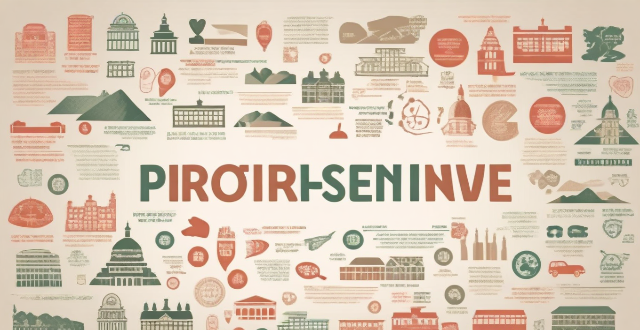
What steps should women take to research the safety of a destination before traveling ?
The provided text offers a comprehensive guide for women to research the safety of a destination before traveling. The steps include online research such as checking government travel advisories and joining travel forums, seeking professional advice from travel agents and security experts, planning ahead by making copies of important documents and informing someone about your itinerary, packing smart with items like personal alarms and door stop alarms, being prepared on the ground by dressing appropriately and learning basic phrases in the local language, and trusting your instincts to avoid potentially dangerous situations. By following these steps, women can enhance their safety while traveling and be better informed about potential risks.

How long does it take to train for a space travel mission ?
This article discusses the various aspects of training for a space travel mission, including physical, mental, and technical training. It highlights the duration of each type of training and emphasizes the importance of thorough preparation to ensure the safety and success of the mission.
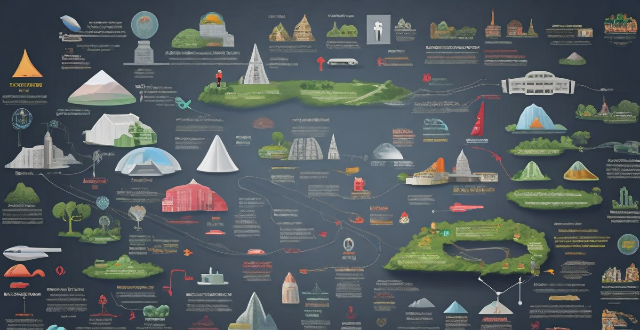
How much does travel insurance usually cost ?
The cost of travel insurance can vary greatly depending on factors such as destination, duration of trip, coverage level, and individual characteristics like age and health condition. To find the best policy for your needs, compare policies from different insurers, look for discounts, consider annual plans if you travel frequently, and review exclusions and limitations carefully.

Can I buy travel insurance for someone else, like my parents or children ?
The article discusses the possibility of buying travel insurance for someone else, such as family members. It highlights the importance of understanding the specific requirements and restrictions associated with this process. The text provides a step-by-step guide on how to purchase travel insurance for someone else, emphasizing the need to choose the right policy that fits the insured person's needs and provides adequate coverage for their trip.

What are some essential items every woman should carry for safety while traveling ?
Traveling can be an exciting and enriching experience, but it's important to prioritize safety, especially for women who may face unique challenges. Here are some essential items that every woman should carry to ensure their safety while on the road: 1. Personal Alarm 2. Pepper Spray 3. Whistle 4. Mobile Phone 5. ID and Emergency Contact Information 6. First Aid Kit 7. Money and Cards 8. Chargers and Power Banks 9. Headphones or Earbuds 10. Trustworthy Travel Companion (if possible) 11. Knowledge of Local Area and Culture 12. Door Stop Alarm or Wedge 13. Reflective Gear or Wearable Tech 14. Water Bottle 15. Mini Flashlight or Keychain Light 16. Duct Tape or Cable Ties 17. Extra Clothing and Rain Gear 18. Multi-tool or Small Knife 19. Sun Protection 20. Seat Cutter or Glass Breaker

How do speed limits affect traffic safety ?
Speed limits are crucial components of traffic safety. They serve as a tool to control the speed of vehicles on the road, thereby reducing the risk of accidents and fatalities. In this article, we will discuss how speed limits affect traffic safety in detail. Importance of Speed Limits: - Reduced Accident Severity - Improved Driver Reaction Time - Reduced Congestion Impact of Speed Limits on Traffic Safety: - Reduction in Fatalities - Decreased Risk of Injury - Increased Compliance with Traffic Laws
![Are there any travel warnings or advisories that I should be aware of before planning a trip to [insert destination] ?](/imgs/2f8b31ee-f62a-46e3-8828-37a4af062f9b.png)
Are there any travel warnings or advisories that I should be aware of before planning a trip to [insert destination] ?
Before planning a trip to [insert destination], itBefore planning a trip to [insert destination], it of any travel warnings or it is important to be aware of any travel warnings or advisories that may affect your safety and well-being. Here are some steps you can take to ensure a safe and enjoyable trip: 1. Check the government website of the country you plan to visit for an overview of the current situation and any travel warnings or advisories that have been issued. 2. Research local news sources in the destination country to get a better understanding of the current situation and any potential risks. 3. Contact your embassy or consulate directly if you have any specific concerns about traveling to the destination country. 4. Consider purchasing travel insurance to provide coverage for unexpected events such as medical emergencies, trip cancellations, or lost luggage. By following these steps, you can ensure a safe and enjoyable trip while minimizing any potential risks.
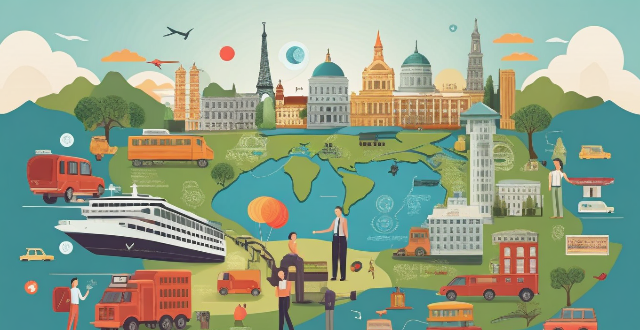
What are the benefits of participating in adventure travel activities ?
Adventure travel activities offer various benefits that positively impact physical, mental, and emotional well-being. These activities improve cardiovascular fitness, muscle strength, and weight management. They also reduce stress, boost self-confidence, and enhance creativity and problem-solving abilities. Adventure travel activities foster social interaction, personal growth, and improved mood and happiness.
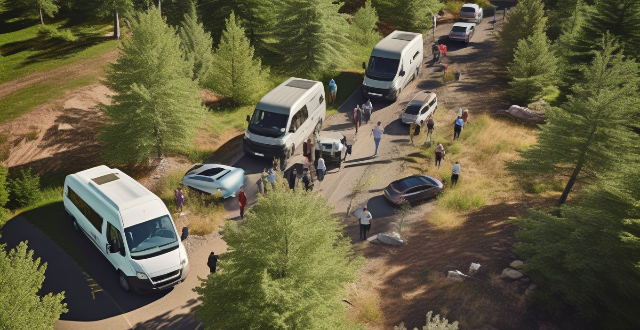
What does a typical travel insurance cover ?
Travel insurance typically covers medical expenses, trip cancellation and interruption, baggage loss and delay, accidental death and dismemberment, and emergency assistance services. Optional extras may include coverage for sports and adventure activities, rental car damage, and travel delay. It's important to consider the specific needs of your trip when selecting a policy and to carefully read the details to understand coverage limits and exclusions.

How can women stay connected with friends and family back home for safety purposes while traveling ?
Women can stay connected with friends and family for safety purposes while traveling by using regular check-ins, social media updates, emergency contact apps, email updates, messaging platforms, portable chargers and Wi-Fi solutions, safety apps, pre-planned signals, traditional mail, and wearable technology. These methods ensure effective communication and peace of mind for both the traveler and their loved ones.
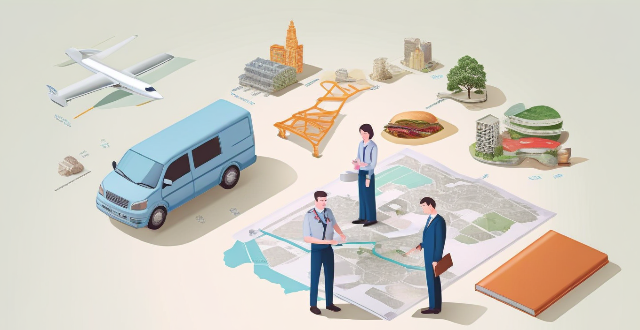
Is there an age limit for buying travel insurance ?
Is there an age limit for buying travel insurance? Most providers do not impose any restrictions based on age, but some policies may have specific requirements or limitations regarding age. When purchasing travel insurance, consider factors such as coverage options, pre-existing medical conditions, adventure sports coverage, cost, and reputation.

How do safety regulations affect the manufacturing industry ?
Safety regulations are critical in manufacturing for worker safety, environmental protection, and product quality assurance but can increase costs and administrative burden while potentially slowing innovation.

How can I be prepared for medical emergencies while traveling abroad ?
This text provides advice on how to be prepared for medical emergencies while traveling abroad. It suggests researching healthcare options, getting travel insurance, packing a travel medicine kit, learning basic first aid, knowing emergency numbers, staying healthy, and keeping important information handy.

Can I purchase travel insurance after booking my trip ?
The article discusses the possibility of purchasing travel insurance after booking a trip. It emphasizes that buying travel insurance early provides more comprehensive coverage, peace of mind, and potentially better prices. To purchase travel insurance after booking, one should research different policies, contact their travel agent or insurance company, provide relevant information, read the policy details carefully, and keep documentation safe. The article concludes that buying travel insurance early is generally recommended for optimal coverage and peace of mind during travels.

Is it worth buying travel insurance for domestic trips ?
The article discusses the importance of travel insurance for domestic trips. It suggests that while it may not always be necessary, it can provide an additional layer of protection and peace of mind, especially for those embarking on adventurous or expensive trips. The article provides a list of key points to consider when deciding whether to purchase travel insurance, including risk assessment, coverage details, cost analysis, personal circumstances, and peace of mind. It also lists the benefits of travel insurance for domestic trips, such as medical coverage, trip interruption/cancellation, baggage loss/theft, emergency evacuation, and accidental death and dismemberment. The article concludes by suggesting that the decision to buy travel insurance depends on various factors such as the nature of the journey, existing coverage, and personal preferences.

Can you suggest some great iPhone apps for travel ?
The text provides a summary of iPhone apps that can be beneficial for travelers. These include TripIt for organizing travel plans, Google Maps for navigation and real-time traffic updates, CityMaps2Go for offline maps and travel guides, XE Currency for currency conversion, Duolingo for language learning, PackPoint for creating customized packing lists, and WhatsApp for secure messaging and staying in touch. These apps can help travelers plan their trips, navigate unfamiliar locations, manage their budgets, learn new languages, pack appropriately, and stay connected with friends and family.
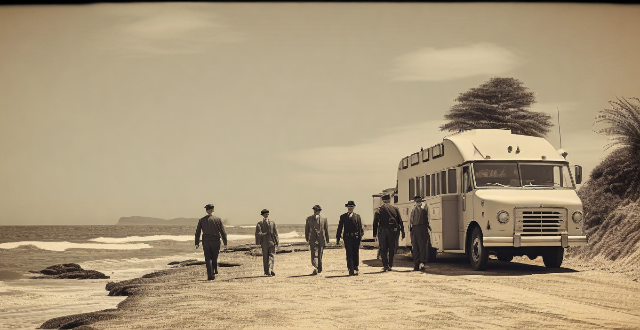
Will travel insurance cover me if I get sick while abroad ?
Travel insurance can cover travelers if they get sick while abroad, but coverage depends on the policy's terms and conditions. Factors to consider include coverage limit, deductible, pre-existing conditions, exclusions, emergency evacuation/repatriation, and claims process. When choosing a travel insurance policy, assess your needs, compare policies, read reviews, purchase early, and consult a professional if necessary.

Who are the major companies involved in commercial space travel ?
Commercial space travel has become a reality with the advancements in technology, and several companies are making significant contributions to the industry. Major companies involved include SpaceX, Blue Origin, Virgin Galactic, Boeing, and Sierra Nevada Corporation (SNC). These companies are developing reusable launch vehicles and reliable rocket engines, as well as spacecraft designed to carry cargo and humans to and from low Earth orbit destinations such as the International Space Station. Their unique technologies and innovations aim to make space travel more accessible and affordable for both scientific research and tourism purposes.
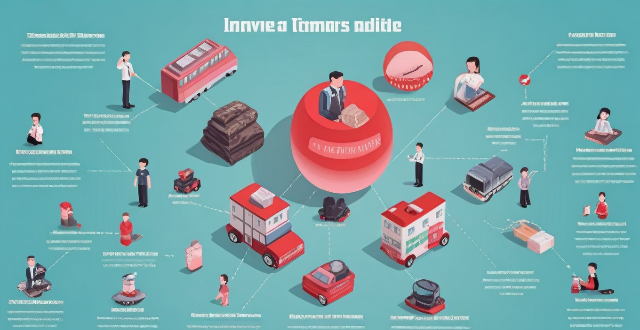
How do I compare different travel insurance policies ?
The article provides a comprehensive guide on how to effectively compare different travel insurance policies. It outlines four key steps: determining needs, checking coverage and benefits, comparing prices and deductibles, and reading reviews and asking for recommendations. The article emphasizes the importance of considering factors such as destination, duration, activities, health, and budget when determining needs. It also highlights the importance of looking for policies that provide comprehensive coverage for medical expenses, trip cancellation and interruption, baggage loss and delay, emergency evacuation and repatriation, and travel assistance services. Finally, it suggests comparing prices and deductibles and seeking out reviews and recommendations from others to make an informed decision. Overall, the article offers valuable insights into the process of selecting the right travel insurance policy.

What are the best adventure travel destinations ?
Adventure travel is a great way to explore the world and experience new things. Here are some of the best adventure travel destinations: 1\. New Zealand: Known for its stunning landscapes and outdoor activities, including hiking, skiing, and kayaking. 2\. Costa Rica: Offers lush rainforests, volcanoes, beaches, and top activities such as surfing, zip-lining, and whitewater rafting. 3\. Iceland: A land of fire and ice, with glaciers, volcanoes, hot springs, and top activities like whale watching, glacier hiking, and snowmobiling. 4\. Nepal: A trekker's paradise, with towering Himalayan peaks and diverse landscapes, offering activities like trekking, paragliding, and whitewater rafting. 5\. Patagonia (Argentina and Chile): Known for its rugged landscapes and outdoor adventures, including hiking, mountain biking, and kayaking.

What are some strategies for finding discounted travel packages and deals ?
Strategies for Finding Discounted Travel Packages and Deals Traveling can be expensive, but there are several strategies to find discounted travel packages and deals. Being flexible with travel dates, signing up for email alerts and newsletters, using travel rewards programs, looking for bundled packages, checking for last-minute deals, considering alternative accommodations, and researching local discounts and freebies are all effective ways to save money on travel expenses. By employing these strategies, travelers can enjoy memorable adventures without overspending.
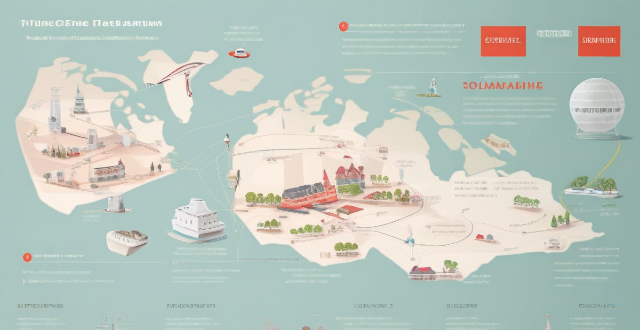
What is the best travel insurance for international trips ?
When it comes to choosing the best travel insurance for international trips, there are several factors to consider. Look for a policy that covers medical expenses, trip cancellation/interruption, baggage and personal effects, emergency evacuation and repatriation, travel delay and missed connection, and identity theft protection. Consider the deductibles and limits of each coverage type within the policy. Pay attention to exclusions and limitations such as pre-existing conditions, adventure sports and activities, and geographical limitations. Look for a reputable insurer with excellent customer service ratings and a smooth claims process. Compare prices across different insurers and policies to find one that fits your budget without compromising on essential coverage. By taking into account these key points, you can choose a policy that provides adequate protection and peace of mind for your next adventure abroad.

How long before my trip should I buy travel insurance ?
Travel insurance is a crucial component of any trip, offering coverage for unexpected events such as medical emergencies, trip cancellations, and lost luggage. The best time to buy travel insurance depends on various factors, including the timing of your purchase, trip details, personal situation, and research. Timing matters when buying travel insurance. It's recommended to buy early for peace of mind, better pricing, and more options. However, waiting too long can increase the risk of forgetting, limit options, and create coverage gaps. Trip details such as destination, length of stay, and activities should also be considered. Personal situation factors like health status, financial protection, and travel companions' needs should also influence the timing of your purchase. Practical steps include researching policies, comparing online, reading reviews, consulting a broker, completing an online application, confirming details, and keeping records. Ideally, travel insurance should be purchased at least a few weeks before the trip to ensure adequate coverage and avoid last-minute stressors.

Can I extend my travel insurance coverage if I extend my trip ?
Topic: Extending Travel Insurance Coverage Summary: If you extend your trip, you may need to extend your travel insurance coverage. This depends on your policy's terms and the flexibility of your insurer. To extend coverage, contact your provider, provide details about your extended trip, pay an additional premium, and confirm the extension in writing. Consider timing, potential coverage changes, and alternatives if necessary.

How quickly can I get reimbursed by my travel insurance company ?
The time it takes to get reimbursed by your travel insurance company depends on the type of claim you are filing and the policies of your insurance provider. Emergency medical claims can be processed within a few days to a week, while non-medical claims can take longer depending on the nature of the claim and the required documentation. To expedite the process, it's important to read your policy carefully, keep all receipts and documentation, contact your travel insurance company promptly, submit complete and accurate information, and follow up on your claim if necessary. By following these tips, you can help ensure a smoother and faster reimbursement experience.

Are there any health precautions I should take before going on a cruise ?
Before embarking on a cruise, it's crucial to take necessary health precautions to ensure a safe and enjoyable experience. These include getting vaccinated, packing a travel health kit, staying hydrated, practicing good hand hygiene, being mindful of food safety, protecting oneself from the sun, and monitoring one's health during the trip. Consulting with a doctor or travel clinic can provide personalized advice tailored to individual needs and itinerary.

Is space travel only for astronauts or can ordinary people go too ?
Space travel, once a distant dream, has become a reality with the advent of commercial spaceflight companies. However, the question remains: is space travel only for astronauts or can ordinary people go too? In the early days of space exploration, only highly trained astronauts were selected to venture into space. These individuals underwent rigorous training and selection processes to ensure their physical and mental fitness for the challenges of spaceflight. Over time, the landscape of space travel has changed significantly. Private companies have entered the arena, offering opportunities for ordinary people to experience spaceflight. This shift has opened up new possibilities for those who dream of exploring the final frontier. Several private companies have emerged in recent years, each with its own approach to space tourism. Some of the key players include Blue Origin, SpaceX, and Virgin Galactic. While space travel may seem like an extravagant luxury, there are several potential benefits for ordinary people who choose to embark on this adventure. These benefits include experiencing weightlessness, viewing Earth from space, and advancing science and technology related to space exploration.
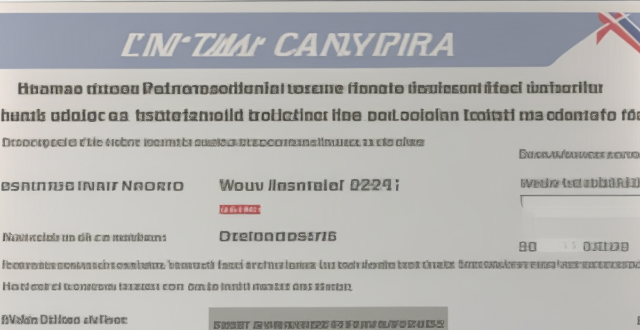
How long does it take to process a travel visa ?
The time it takes to process a travel visa can vary significantly depending on several factors, including the country you are applying for the visa, your nationality, the type of visa you are applying for, and how quickly you are able to submit the required documents and information. It is important to research the specific visa processing time for the country you are applying for the visa, as well as your nationality, the type of visa you are applying for, and how quickly you are able to submit the required documents and information. By taking these factors into account, you can better plan for your travel visa application process.